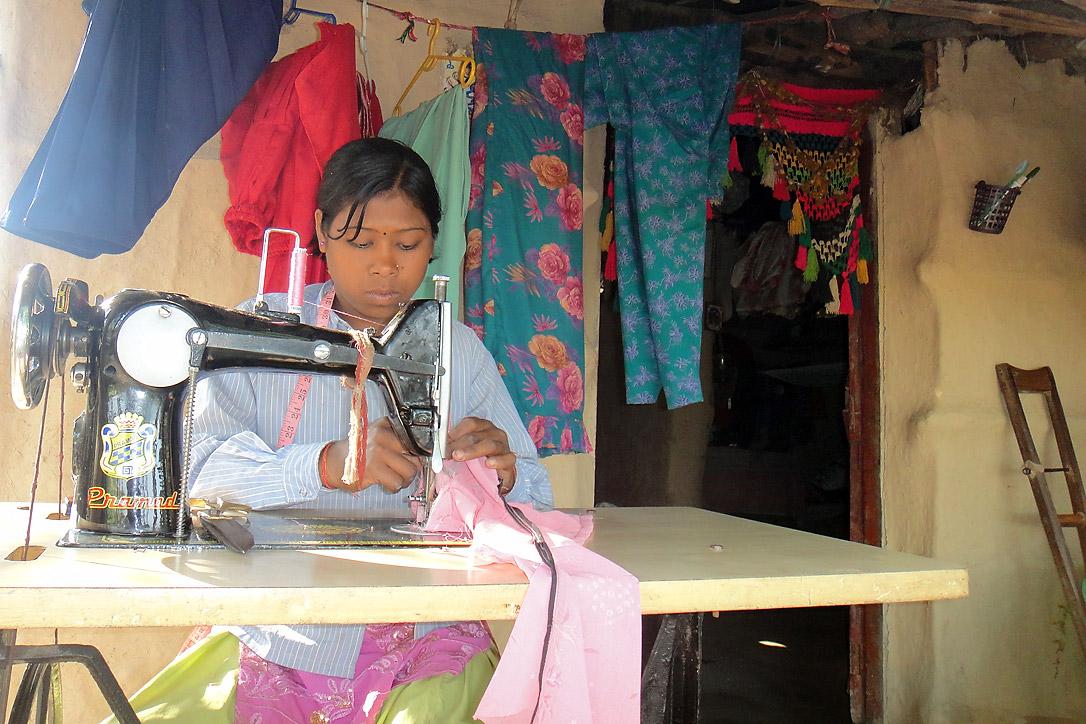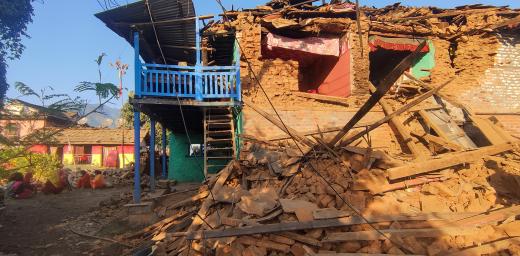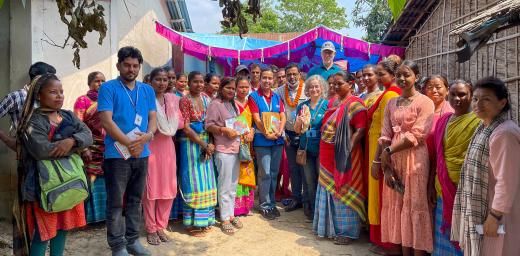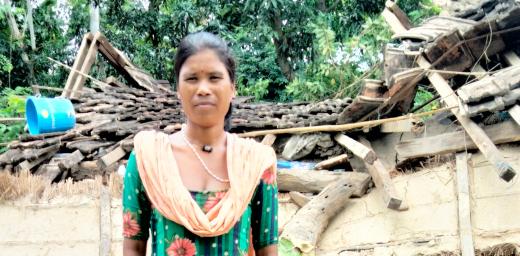Disability is not inability – one woman’s story

Despite her disability, Balarni Chaudhary can depend on the skills she acquired to support herself and her family. Photo: LWF Nepal
LWF Nepal supports networks that empower people living with disabilities
(LWI) – Growing up for Balarni Chaudhary was difficult. She has only one leg and lost her father when she was very young. She felt she was a burden to her family. But today the 21-year-old, who lives in Kanchanpur, western Nepal, supports herself as a tailor and is involved with the network of physically handicapped people in her village.
She expresses gratitude to the Freed Kamaiya Women’s Development Forum (FKWDF), a partner of The Lutheran World Federation (LWF) Nepal program for providing her with a three-month sewing and tailoring training, and for supporting her as she began her work.
The United Nations World Day of Persons with Disabilities, marked on 3 December each year, is an opportunity for the LWF to highlight the challenges facing people with disabilities and the possibilities to support them.
Since 2013, LWF humanitarian development programs in Asia have focused on disability as a core commitment in each country program, drafting disability-inclusion policies and offering training for teachers and those requiring assistance towards earn their own incomes.
Such support incorporates capacity development, training in project management, policy and guidelines, and rights-based approaches to strategic planning and human rights policies.
As a disabled girl with only one leg, Chaudhary was dependent on her family, which includes her mother, one older brother and two younger brothers. She was forced to quit school at 10 because of family financial difficulties.
“Family members were not happy with me as I was unable to contribute to the household economy due to my physical condition. For a poor, excluded disabled girl surviving on what she could do with her bare hands and uncertain about the future, FKWDF offered guidance, selected me for training, making a handicapped person a priority.”
At first Chaudhary was nervous and felt there was little hope. But, drawing on her determined spirit, she slowly gained courage. She knew nothing about knitting buttons, handling a sewing machine, cutting or folding clothes. But after one month, she started to feel more confident.
“As the result of that training, I now work mostly for lady customers sewing and hope to take advance training so I can offer new clients additional clothing items. There was no other alternative for earning a living. Before learning these skills I had a very miserable life,” she adds.
Today Chaudhary earns NPR 5000 (nearly USD 50) per month sewing clothes for people in her community. She is independent. The training provided by FKWDF with assistance from the LWF Nepal country program should support her in the coming years.
“I am very happy that I learned to sew and earn money even though I have a disability. Now I think that I can depend on my own skill and sewing capacity. There is no tension in my life and I have increased my willpower to learn more skills through such training programs.”
Married with a family of her own, Chaudhry has social standing in the community, a bank account in a nearby micro finance institution and is saving some money for the future.
As secretary for the local network of people with disabilities, she knows how fortunate she has been to get training from the LWF-supported FKWDF. “I would urge employers to look past people’s disabilities and value what they have to offer for their employment,” she adds.





